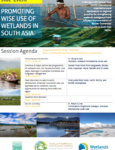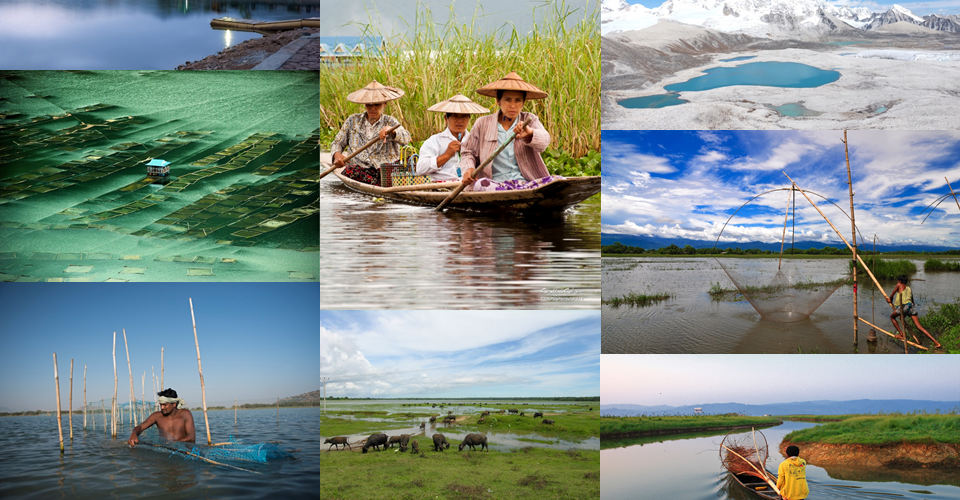Sustainable development of South Asia is closely linked to the health of the region’s wetlands. The Contracting Parties to Ramsar Convention within the region have committed to wise use of wetlands, to be achieved through creation of enabling policy environment, integrated management of Ramsar Sites and other wetlands, CEPA and regional cooperation.
A suite of guidance has been adopted by the Contracting Parties to assist in practical implementation of wise use approach. However, continued degradation of wetlands in the region indicates challenges in application of available guidance, as well as the need to tailor implementation approaches considering specific regional contexts, such as structural approach to water management, heavy dependence on groundwater, high population densities and rampant poverty. Regional homogeneities in the wetlands regimes, their influencing drivers and pressures, policy environment, and capacities indicate possibilities of benefitting from regional collaboration and exchange while seeking wetlands wise use outcomes. Restoration initiatives as demonstrated in Lake Chilika (India), Ghodaghodi Lake Area (Nepal) and Tanguar Haor (Bangladesh) embellish the significance of community driven and adaptive management of wetlands, as pathways for realization of wise use principles in South Asia.
The side event aims at a dialogue with Ramsar focal points, international organizations and stakeholders on regional priorities for strengthening wetlands management and effective implementation of Ramsar Convention commitments in South Asia region. Through plenary presentations and panel discussions, the event would seek to identify priorities that need to be addressed at regional level to create an enabling environment for wise use of wetlands in South Asia, and mechanisms for enhancing learning and experience sharing within the region.

Ramsar COP 13 - Side Event Flyer
download
